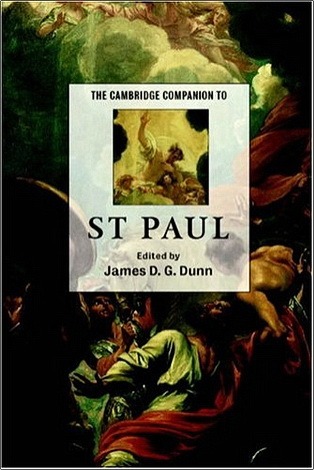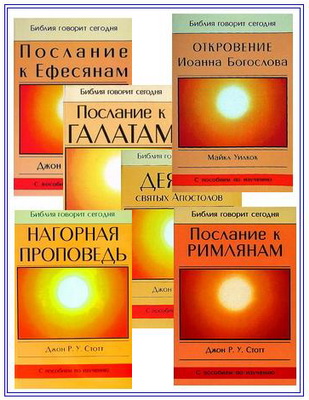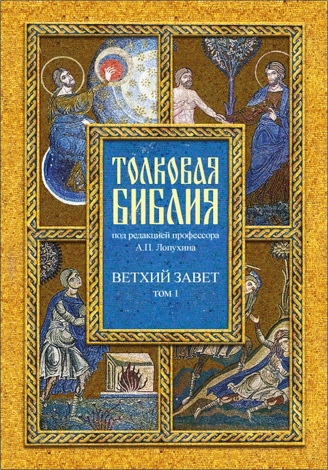
Dunn - St Paul - Джеймс Данн - Святой Павел
Cambridge Companions to Religion
A series of companions to major topics and key figures in theology and religious studies. Each volume contains specially commissioned chapters by international scholars which provide an accessible and stimulating introduction to the subject for new readers and non-specialists.
A series of companions to major topics and key figures in theology and religious studies. Each volume contains specially commissioned chapters by international scholars which provide an accessible and stimulating introduction to the subject for new readers and non-specialists.
Рaul has always been an uncomfortable and controversial figure in the history of Christianity. The accusation against the prophet Elijah by Israel’s King Ahab, ‘you troubler of Israel’ (1 Ks. 18:17), could be leveled against Paul more fittingly than any other of the first Christians. He first appears on the public stage of first-century history as a Jewish ‘zealot’ (Acts 22:3), one who measured his ‘zeal’ by his attempt to violently ‘destroy’ (Gal. 1:13; Phil. 3:6) the embryonic movement within Second Temple Judaism, then best characterized as ‘the sect of the Nazarenes’ (Acts 24:5, 14; 28:22), two generations later as ‘Christianity’.1 Following his conversion, when he turned round and joined those whom he had persecuted (Acts 9; Gal. 1:13–16), and when he then embarked on a highly personal mission to win Gentiles to the gospel of Christ (Rom. 11:13; 15:18–20), he displayed the same sort of passionate commitment, even ‘zeal’ (2 Cor. 11:2) on behalf of his converts and churches.
Such out-and-out commitment to his cause created tremendous resentment among his fellow Jews, including, not least, those Jews who, like him, had also come to believe in Jesus as Israel’s Messiah.2 One of the chief reasons why we still have so many of his letters is that his teaching was quickly challenged by varying opponents from both within and without the churches he established; it was characteristic of Paul that he did not hesitate to respond vigorously to such challenges.3 Similarly when his churches proved restive under his tutelage he saw it as part of his continuing apostolic vocation to write to further instruct, encourage and exhort them.4 The fact that most, though not all of his letters were preserved for posterity testifies to their effectiveness; they must have been treasured by those who received them, circulated round other churches and within a generation or so have been gathered into a single collection for wider use.
James D. G. Dunn — St Paul - Джеймс Данн - Святой Павел
Cambridge University Press, The Edinburgh Building, Cambridge
Published in the United States of America by Cambridge University Press, New York
ISBN-10 0-521-78155-8
James D. G. Dunn — St Paul — Джеймс Данн - Святой Павел - Contents
-
Part one Paul’s. Life and work
- 1 Paul’s life. Klaus Haacker
- 2 Paul as missionary and pastor. Stephen C. Barton
-
Part two. Paul’s letters
- 3 1 and 2 Thessalonians. Margaret M. Mitchell
- 4 Galatians. Bruce Longenecker
- 5 1 and 2 Corinthians. Jerome Murphy-O'Connor
- 6 Romans. Robert Jewett
- 7 Philippians. Morna Hooker
- 8 Colossians and Philemon. loren T. Stuckenbruck
- 9 Ephesians. Andrew T. Lincoln
- 10 The Pastoral Epistles. Arland J. Hultgren
-
Part three. Paul’s theology
- 11 Paul’s Jewish presuppositions. Alan F. Segal
- 12 Paul’s gospel. Graham N. Stanton
- 13 Paul’s Christology. L. W. Hurtado
- 14 Paul’s ecclesiology. Luke Timothy Johnson
- 15 Paul’s ethics. Brian Rosner
-
Part four. St Paul
- 16 Paul in the second century. Calvin J . Roetzel
- 17 Paul’s enduring legacy. Robert Morgan
- 18 Contemporary perspectives on Paul. Ben Witherington
Dunn — St Paul — Paul’s gospel. Graham N. Stanton
Paul uses a cluster of related terms to refer to his initial missionary preaching and to the proclamation at the heart of his letters. The nouns ‘gospel’ (euaggelion), ‘word’ (logos or rhe¯ma), ‘preaching’ (akoe¯), ‘proclamation’ (ke¯rygma), and ‘witness’ (martyrion) are often used almost synonymously, as are the corresponding verbs.
The most important of these terms is undoubtedly the noun ‘gospel’, which is used 48 times in the undisputed letters; the verb ‘to proclaim good news’ is used 19 times. Paul probably inherited the distinctive early Christian use of ‘gospel’ from those who were followers of Jesus before his own call or conversion. Indeed the noun may well have been used by Greek-speaking Jews in Jerusalem and Antioch very soon after Easter. The noun ‘gospel’ is rarely used in the Old Testament, and never in a religious context with reference to God’s good news. So early Christian use of this noun must be understood against the backdrop of current usage in the cities in which Christianity first took root. Literary evidence and inscriptions both confirm that the term ‘gospel’ was closely associated with the imperial cult in the cities of the eastern Mediterranean. One particular inscription provides striking evidence. In 9 or 10 bc a decree in praise of Caesar Augustus was erected in the market-place in Priene and in numerous other cities of Asia. The birthday of Augustus, ‘our most divine Caesar’, is equated with ‘the beginning of all things’, for he gave ‘a new look to the entire world’. His birthday ‘spells the beginning of life and real living’. ‘The birthday of our God signalled the beginning of Good News [euaggelia – plural] for the world because of him.’
In this inscription, and in the other non-Christian examples, the noun ‘gospel’ is used in the plural. In the first century, the accession of each individual Roman Emperor was regularly considered to provide new hope, the dawn of a new era, ‘good news’; hence there could be more than one set of ‘glad tidings’ or ‘gospels’. For Paul, and in all NT usage, the noun is always used in the singular: the life, death, and resurrection of Jesus was God’s ‘once for all’ disclosure of ‘a glad tiding’.
The use of the verb ‘to proclaim good news’ in Isa. 52:7 and 61:1 may well have encouraged Paul and his predecessors to develop the distinctive Christian use of the noun ‘gospel’ in counterpoise to usage in the imperial cult. In Rom. 10:15 Paul cites Isa. 52:7 (LXX) in summary form, ‘how beautiful are the feet of those who bring (God’s) good news, (who announce salvation)’. Paul immediately equates his use of the noun ‘glad tiding’ with the verbal form ‘those who proclaim glad tidings’ used in this quotation (Rom. 10:16).
What were the central themes of Paul’s ‘gospel’? At some points in his letters, certain theological themes are prominent, but those very themes are conspicuous by their absence elsewhere. This phenomenon has often prompted the observation that Paul’s gospel is like a chameleon: it changes colour and shape according to the background against which it is set. As we shall see, however, there is a set of convictions concerning the gospel from which the apostle never wavered, even though the circumstances of the recipients of his letters elicited varying emphases.





Комментарии (2 комментария)
Может ББИ, Коллоквиум. Слишком много хороших книг, слишком мало хороших издательств.
Книги об ап. Павле продолжаются, супер! Вот еще бы перевод!